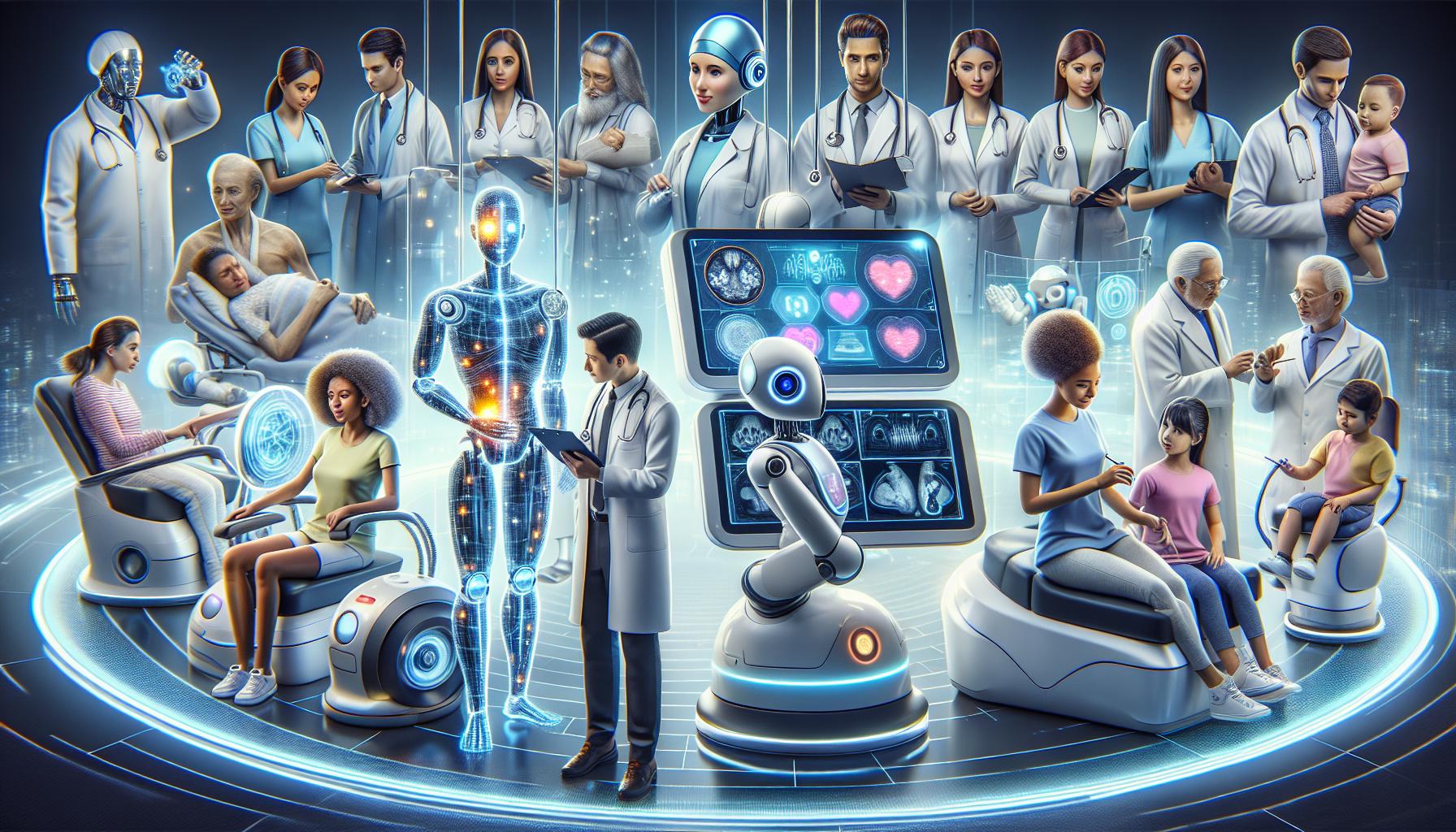The Rise of Artificial Intelligence in Healthcare: A Game-Changing Revolution
Artificial intelligence (AI) has come a long way in recent years and is revolutionizing many industries, including healthcare. With its ability to analyze vast amounts of data, identify patterns, and make predictions, AI has the potential to transform patient care and improve healthcare outcomes. The rise of AI in healthcare represents a game-changing revolution in the field, promising increased efficiency, accuracy, and personalized care for patients.
Unleashing the Potential: How AI is Transforming Patient Care
AI is transforming patient care in numerous ways. One of the key areas where AI is making a significant impact is in diagnosis and treatment planning. By analyzing medical images, AI algorithms can quickly and accurately detect abnormalities, helping physicians diagnose conditions earlier and with greater precision. Moreover, AI-based systems can assist doctors in creating personalized treatment plans, considering factors such as the patient’s unique genetic makeup and medical history.
AI is also transforming healthcare delivery by enabling remote monitoring and telemedicine. Through the use of wearable devices and sensors, AI can continuously monitor patients’ vital signs, detect any deviations from normal values, and alert healthcare providers in real-time. This enables early intervention and can prevent serious complications. Additionally, telemedicine platforms powered by AI algorithms allow patients to consult with healthcare professionals remotely, improving access to care, especially in rural or underserved areas.
Breaking Barriers: The Role of AI in Overcoming Healthcare Challenges
The healthcare industry faces numerous challenges, including an aging population, a shortage of healthcare professionals, and rising healthcare costs. AI can play a crucial role in overcoming these challenges. AI algorithms can analyze electronic health records and patient data to predict disease progression, identify high-risk patients, and recommend preventive measures. By proactively managing patients’ health, AI can help reduce hospital admissions and the burden on healthcare professionals.
AI-powered chatbots are also being used to improve patient engagement and education. These virtual assistants can answer patients’ questions, provide information about medications, and offer support in managing chronic conditions. This not only empowers patients to take control of their health but also frees up healthcare professionals’ time to focus on more complex tasks.
Enhancing Diagnosis and Treatment: The Power of AI in Healthcare
AI has the power to enhance diagnosis and treatment by augmenting the capabilities of healthcare professionals. Machine learning algorithms can analyze vast amounts of structured and unstructured data, including medical literature, research papers, and patient records, to identify trends and patterns that may not be apparent to humans. This can aid in accurate diagnosis, especially in complex cases where multiple factors need to be considered.
In addition to diagnosis, AI can assist in treatment selection and monitoring. AI algorithms can analyze treatment outcomes, patient responses, and adverse events to optimize treatment plans. This can lead to more tailored and effective treatments, improving patient outcomes and reducing costs.
Embracing the Future: Harnessing AI for Improved Healthcare Outcomes
As AI continues to advance, its potential to improve healthcare outcomes is limitless. However, for AI to reach its full potential, collaboration between healthcare professionals, researchers, and technology developers is essential. Regulatory frameworks need to be established to ensure the ethical and responsible use of AI in healthcare. Privacy and security concerns must also be addressed to safeguard sensitive patient data.
Embracing AI in healthcare requires a shift in mindset and a willingness to adapt to new technologies. Healthcare professionals can leverage AI to enhance their decision-making and provide more personalized care to their patients. As AI becomes more integrated into healthcare systems, its potential to revolutionize the field and improve patient outcomes will only continue to grow. With the right approach, AI has the power to transform healthcare into a more efficient, accessible, and patient-centered system.
Analyst comment
Positive news. The rise of AI in healthcare is a game-changing revolution, promising increased efficiency, accuracy, and personalized care. AI is transforming patient care through diagnosis and treatment planning, remote monitoring, and telemedicine. It can overcome healthcare challenges, enhance diagnosis and treatment, and improve healthcare outcomes. However, collaboration, regulatory frameworks, privacy, and security concerns are essential for AI to reach its full potential. With the right approach, AI has the power to revolutionize healthcare into a more efficient, accessible, and patient-centered system.













